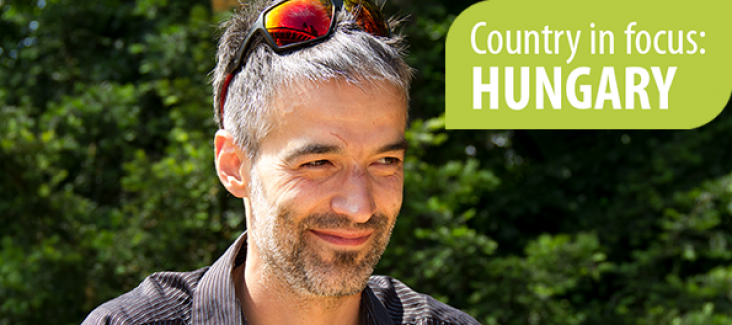What was the goal of the conference ‘People, issues, methods - Happening for our democratic culture’?
Our happening’s direct aim was to bring closer Hungarian democratic reformers, activists, experts and other interested people, to bring about fresh new insights and methods, and highlight issues of our democratic culture, through an experimental event.
In Hungary, there are very interesting processes going on in terms of democratic culture on every level: from the illiberal concept of democracy, through the deeper social changes that are taking place in our citizen culture. But, there are very few occasions to meet and discuss these interest, so I thought it would be a good idea to provide a meeting point, a special event to bring together likeminded people.
Democratic thinking and action are facing great repression. We need to look much more closely at the scientific and human aspects of democratic practice to come up with better answers for the challenges we face, and so that we don’t replicate the same mistakes again and again.
On the other hand, we also wanted to share our experiences with people from outside of Hungary. We believe, that there is a lot going on in terms of our democratic cultural transition and hope that our neighbours, current and historical, could benefit from our experiences. Conferences like this could be a part of a „democracy crisis prevention” programme for example.
What was the highlight of the conference for you? What were the most important outcomes?
When I am organizing something, I’m in a special state of mind. An event behaves like an organism: the information participants bring to the table, the feelings that are going through me… and I can feel and feed this organism.
I enjoyed the company of our guests very much. I cannot really say which was the best moment, but I can say that the flexibility and freedom of the partnership with Democracy International, the help of Daniel Schily, and the openness of our guests were the key moments for me.
The event strengthened what I feel in my whole existence, that there is a need to invent and realize new forms of democratic engagement and there are a lot of methods, which are ready for adaptation.
We have many smaller plans to continue the collaborative work throughout the year, and to organize the next event with other guests from neighbouring countries.
What are the challenges Hungary is facing when it comes to direct democracy, and democracy in general, today?
Personally, I have a sense that, just like in most cases, the biggest obstacle is the lack of a need for knowledge. (Most) politicians seem not to be interested in how to govern more democratically – instead they try to extend their power, with the support of political and communication advisors.
In the past 10 years, many forms of direct democracy, regulated by the state have been deleted, weakened and hollowed out as the result of Orbán’s minimal democracy. This has been done in a subtle, very clever and planned way. We need to stop this somehow! We need to awake from political and community apathy and powerlessness! Day by day the possibilities to defend our citizens’ interests are slipping away by the working of these political forces – just like an erosion by strong natural forces - but only a few people see and understand this.
We need to practice how to care better for our democracy. To many people, many of the acts of the government seem to be true and justified, legally and in the way they communicate on them, but socially they obviously aren’t. Of course, on the other hand, more and more interesting protests are taking place and social movements are being born, but we still need larger and stronger community connections to make real changes. We need to remind each other, that we have the power and mandate to set rules directly and democratically, and there is no one entity, that can prevent us citizens from doing this. This freedom cannot be taken from us, we just need to find out how to use this freedom to realize a consciousness shift in democracy.
Videos from the conference and Interviews with some of the speakers on the future of democracy and the Hungarian context can be found here.

